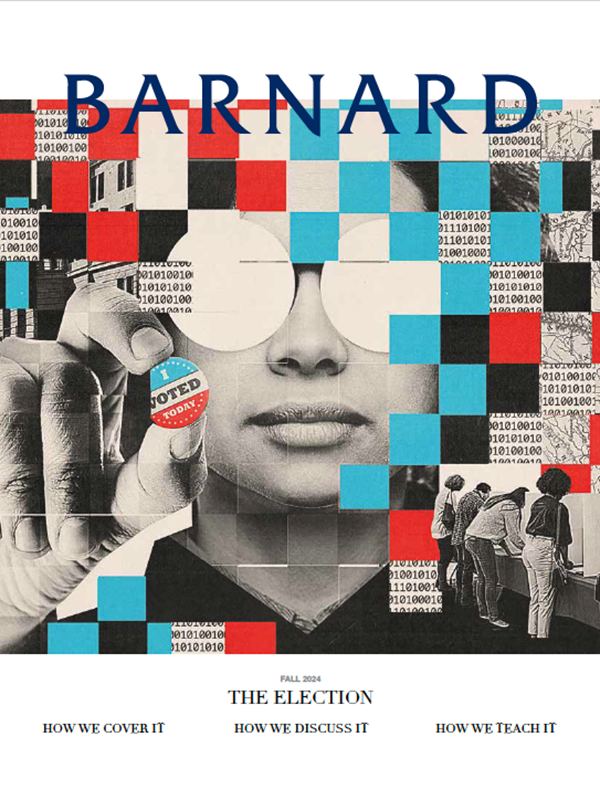As director of the education program at Barnard, Professor Lee Anne Bell doesn’t mince words about the current focus on high-stakes testing: “I think we’re going in absolutely the wrong direction,” she says. The assessments so popular today in American education support the “lowest common denominator,” and don’t nurture “thinking, creative teachers who know their subject matter.”
Preparing to retire this year, Bell has been working on issues of social justice and education since the early 1970s. Then a new graduate of Indiana University with a double degree in history and the nascent field of Afro-American studies, Bell joined the Teacher Corps, a government program that at the time sought to improve education in low-income areas.
She was assigned to Hartford, Conn., and the experience proved eye-opening. “Hartford was one of the most impoverished and racially segregated cities in the country,” recalls Bell, who had grown up hearing her mother talk about the American dream and believing “that school is a way for people to expand their opportunities.” In Hartford, she witnessed how the system is “so stacked against poor people and people of color.”
Today, Bell strongly opposes the arguments she hears against increasing the minimum wage. “Give kids enough food to eat. Let them come to school well rested. Let them come to a school where the teacher is well prepared. That makes the difference; that connects the issues so we can all start to think more broadly.” She continues, “The term ‘social justice’ has been taken up and diluted. Some say we are living in a post-racial society since President Obama was elected. The Supreme Court is saying the way to deal with race is not to talk about it.” Bell sighs. “In the sweep of history, progress is slow.”
Speaking of her own career, however, Bell largely expresses unqualified enthusiasm. She received an EdD from the University of Massachusetts, Amherst, in 1982, and subsequently joined the faculty of SUNY New Paltz, where she received the SUNY Chancellor’s Award for Excellence in Teaching, among other honors. She taught at New Paltz until 2001. The education program at Barnard, which marked its 50th anniversary in 2002, the year she arrived, has really “been a generative place,” says Bell. Her students have been “smart and prepared and curious. They want to make the world a better place.” Barnard students, she says, “take ideas and run with them,” and have gone on to teach all over the world.
About a decade ago, she secured a grant from the Third Millennium Foundation, which allowed her to organize a project that became a career highlight. Bell spearheaded the Storytelling Project, a partnership among students, professors, and artists to use the arts to develop a curriculum about race and racism. The 2005–6 collaboration aimed to reveal those “concealed stories—the stories that don’t appear in history books or children’s books or television,” says Bell. The project provided fertile ground for offshoots, including Bell’s book, Storytelling for Social Justice: Connecting Narrative and the Arts in Antiracist Teaching (Routledge, 2010).
The project also encouraged Bell to view the arts through a different lens, and helped foster her next big undertaking: the documentary, 40 Years Later: Now Can We Talk? Bell’s first film explores the integration of a Mississippi high school in 1969, and provides interviews with black and white alumni 40 years later. Bell has been traveling with the film, and recently showed it in China, where her husband, a math professor, is teaching at NYU Shanghai for the spring semester. The Chinese students and faculty were fascinated and unfamiliar with the themes, but the European faculty related immediately to the ideas of racial stereotyping and separation. The documentary also received two awards: the Charles and Margaret Witten Award for Distinguished Documentary Film in Education, and the National Association for Multicultural Education Multicultural Media Award.
New trends in education fail to excite Bell. She’s doubtful of the overall benefits of charter schools because “they suck resources out of the public schools,” “cherry-pick kids,” and do not belong to the union, so the teachers aren’t necessarily paid fairly. She is also skeptical about the use of technology in the classroom as a solution for not having enough teachers and resources. She says technology is often abused in impoverished settings. “Face-to-face learning is really important,” says Bell, adding that in some low-income schools, instead of 25 children with one teacher, the classroom features 40 children “facing a bank of monitors.”
The future of social justice isn’t entirely hopeless, though. It’s an exciting time at colleges, according to Bell. “There’s Black Lives Matter. There’s a lot of activism on campus. There’s a lot of creativity on campus,” says Bell. One wonders why she would want to exit the college scene. She jokes, “After 35 or 40 years, I’m ready to be deinstitutionalized.”
